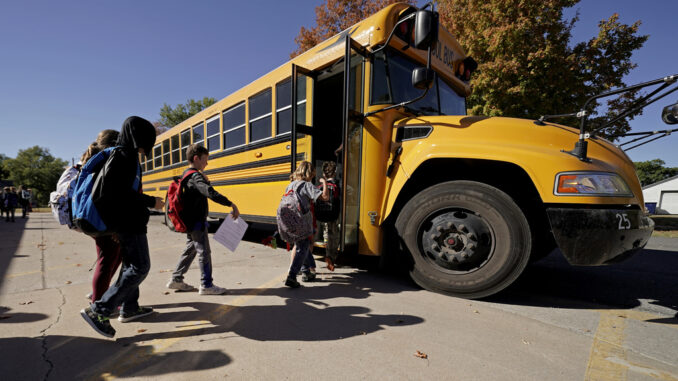

RALEIGH — The North Carolina House Select Committee on Education Reform has recommended a major overhaul of the state’s school grading system, which currently assigns letter grades to schools based primarily on standardized test scores.
The proposed changes aim to provide a more comprehensive assessment of school quality by incorporating four additional factors such as average student test score growth, student achievement on standardized tests, career and college readiness, and “opportunities” available to students.
Notably, chronic absenteeism would also be factored in, reflecting concerns about rising absentee rates as part of the opportunities category, which also includes intra/extracurricular activities.
A student in North Carolina is considered chronically absent if they miss 10% or more of the total days of school during a single school year. During the 2021-22 school year, 31% of the state’s K-12 students were considered chronically absent. That number fell to just under 27% in 2023.
The committee’s report suggests that the current grading system lacks balance and fails to effectively communicate school quality compared to systems used in other states, which often consider a wider range of metrics like graduation rates and extracurricular activities.
The committee’s report largely mirrors suggestions made by N.C. State Superintendent Catherine Truitt to the N.C. State Board of Education in late February.
Truitt’s proposal would include adding more metrics to include career preparation, student attendance, graduation rates and educator surveys on school climate. Under her proposal, instead of schools receiving a single letter grade, a new “multi-measure model” would give schools four individual grades for Academics, Progress, Readiness and Opportunity.
Math, science and biology achievement, as it pertains to continued pandemic learning loss recovery efforts, are also addressed in the committee’s report and recommends supporting the Department of Public Instruction in those efforts with investments in four areas: building on early grade literacy and math progress, providing targeted and evidence-based reading and math interventions in middle grades, exploring STEM initiatives aligned to workforce priorities, and renewing a commitment to the Department’s research in studying and identifying effective interventions.
The recommendations are intended to be submitted to the General Assembly for consideration during the upcoming legislative short session beginning April 24, with further discussions planned before the 2025 long session.



